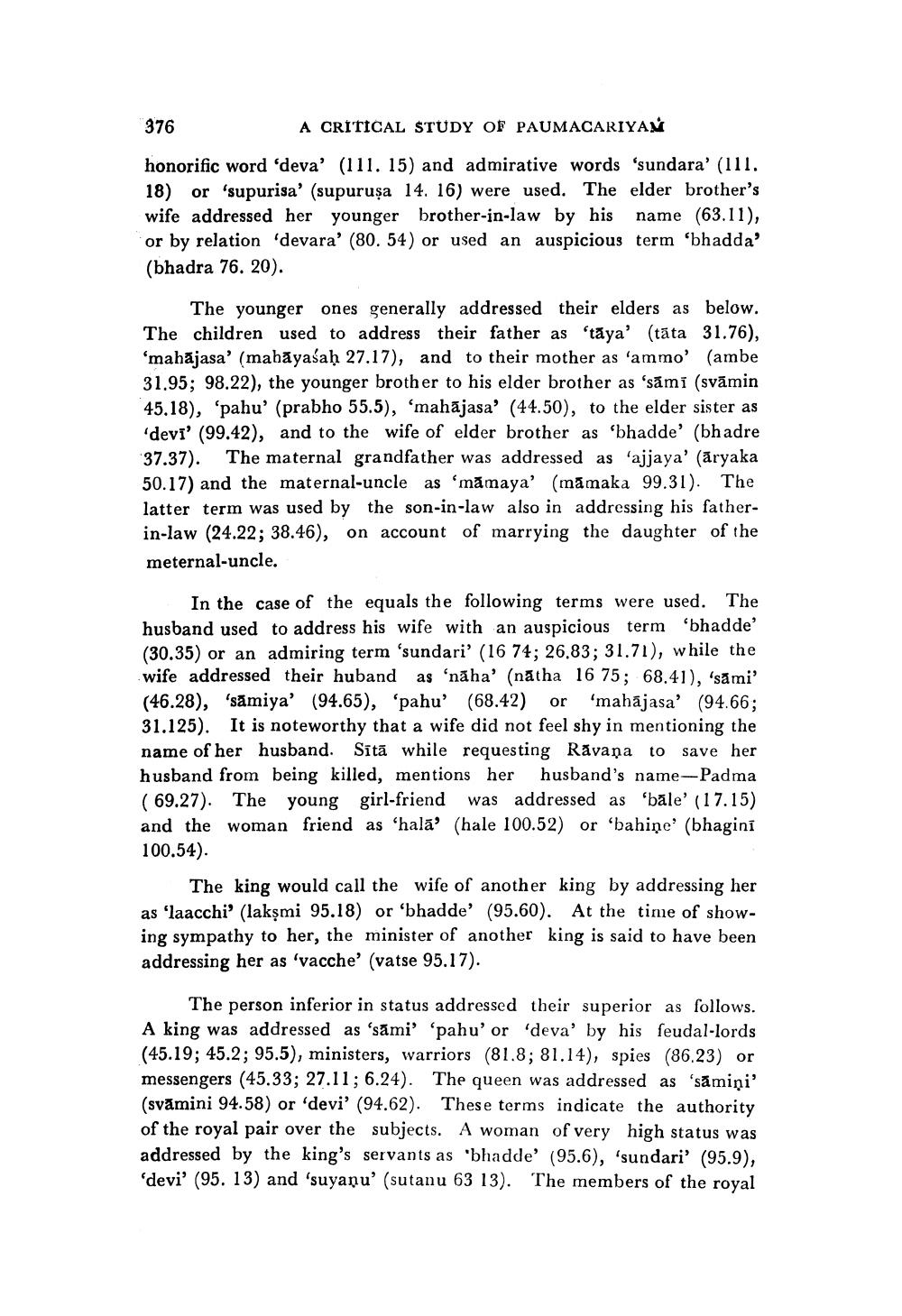________________
376
A CRITICAL STUDY OF PAUMACARIYAN
honorific word 'deva' (111. 15) and admirative words 'sundara' (111. 18) or 'supurisa' (supuruşa 14. 16) were used. The elder brother's wife addressed her younger brother-in-law by his name (63.11), or by relation 'devara' (80. 54) or used an auspicious term 'bhadda' (bhadra 76. 20).
The younger ones generally addressed their elders as below. The children used to address their father as 'taya' (tāta 31.76), 'mahājasa' (mahāyaśaḥ 27.17), and to their mother as 'ammo' (ambe 31.95; 98.22), the younger brother to his elder brother as 'sami (svāmin 45.18), 'pahu' (prabho 55.5), 'mahājasa' (44.50), to the elder sister as 'devī' (99.42), and to the wife of elder brother as 'bhadde' (bh adre 37.37). The maternal grandfather was addressed as 'ajjaya' (āryaka 50.17) and the maternal-uncle as 'mămaya' (mamaka 99.31). The latter term was used by the son-in-law also in addressing his fatherin-law (24.22; 38.46), on account of marrying the daughter of the meternal-uncle.
In the case of the equals the following terms were used. The husband used to address his wife with an auspicious term 'bhadde' (30.35) or an admiring term 'sundari' (16 74; 26.83; 31.71), while the wife addressed their huband as 'nāha' (natha 16 75; 68.41), 'sāmi' (46.28), 'sāmiya' (94.65), 'pahu' (68.42) or 'mahājasa' (94.66; 31.125). It is noteworthy that a wife did not feel shy in mentioning the name of her husband. Sītā while requesting Răvana to save her husband from being killed, mentions her husband's name-Padma ( 69.27). The young girl-friend was addressed as 'bāle' (17.15) and the woman friend as 'hala' (hale 100.52) or 'bahiņe' (bhagini 100.54).
The king would call the wife of another king by addressing her as 'laacchi' (lakṣmi 95.18) or 'bhadde' (95.60). At the time of showing sympathy to her, the minister of another king is said to have been addressing her as 'vacche' (vatse 95.17).
The person inferior in status addressed their superior as follows. A king was addressed as 'sāmi' 'pahu' or 'deva' by his feudal-lords (45.19; 45.2; 95.5), ministers, warriors (81.8; 81.14), spies (86.23) or messengers (45.33; 27.11; 6.24). The queen was addressed as 'sāmiņi' (svāmini 94.58) or 'devi' (94.62). These terms indicate the authority of the royal pair over the subjects. A woman of very high status was addressed by the king's servants as 'bhadde' (95.6), 'sundari' (95.9), devi' (95. 13) and 'suyaņu' (sutanu 63 13). The members of the royal




